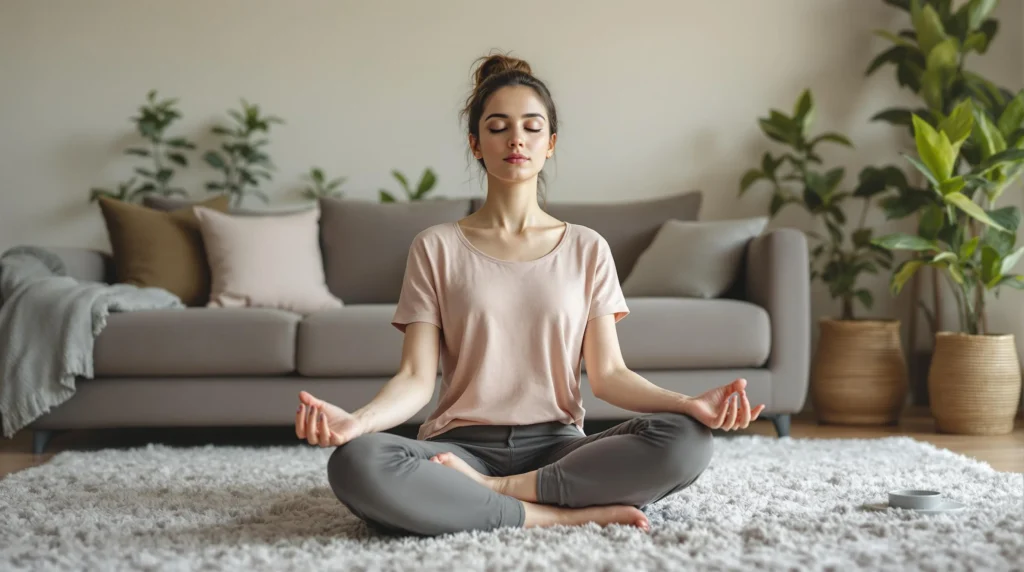Table of Contents
ToggleIn a world that seems to move at lightning speed, self-care often takes a backseat. Yet, it’s not just a trendy buzzword; it’s the secret sauce for a happier, healthier life. Imagine treating yourself like the precious gem you are—because let’s face it, you deserve a little TLC now and then.
Understanding Self Care Stuff
Self-care involves activities and practices that individuals engage in to enhance their well-being. These practices promote physical, mental, and emotional health in a world that demands constant attention and effort.
Definition of Self Care
Self-care refers to intentional actions individuals take to nourish their health and happiness. These actions can include physical activities, hobbies, and mindfulness exercises. Engaging in self-care means prioritizing one’s own needs and well-being. It encompasses practices such as exercise, adequate sleep, and healthy nutrition. Examples include meditating, journaling, and spending time in nature. Understanding self-care empowers individuals to make choices that foster personal growth and resilience.
Importance of Self Care
Prioritizing self-care is crucial for overall health. Neglecting personal needs can lead to stress, burnout, and decreased productivity. Practicing self-care impacts mental clarity and enhances emotional resilience. Studies show that consistent self-care routines contribute to improved mood and reduced anxiety. Engaging in self-care allows individuals to recharge, ultimately benefiting relationships and work performance. Emphasizing self-care strengthens one’s ability to cope with challenges and manage daily responsibilities.
Types of Self Care Stuff
Understanding the different types of self-care can guide individuals toward activities that nurture their well-being. Recognizing these categories helps prioritize personal needs effectively.
Physical Self Care
Physical self-care focuses on bodily health through activities promoting wellness. Regular exercise energizes the body and boosts mood. Eating nutritious meals provides essential nutrients for overall well-being. Getting adequate sleep supports recovery and enhances cognitive function. Engaging in routine medical check-ups ensures health issues are caught early. Staying hydrated contributes to better physical performance and mood regulation.
Emotional Self Care
Emotional self-care emphasizes the importance of recognizing and processing feelings. Journaling serves as an effective outlet for thoughts and emotions. Practicing mindfulness promotes awareness and reduces stress. Seeking professional help when needed offers support during challenging times. Engaging in creative activities can provide joy and an emotional release. Setting healthy boundaries protects emotional well-being in relationships.
Social Self Care
Social self-care involves nurturing relationships that enhance emotional support. Spending time with friends strengthens connections and boosts happiness. Adding regular social interactions to one’s routine promotes a sense of belonging. Joining clubs or groups fosters new friendships and shared interests. Communicating openly with loved ones creates deeper bonds and trust. Prioritizing quality time with family reinforces social stability and encourages support.
Spiritual Self Care
Spiritual self-care focuses on connecting with deeper values and beliefs. Engaging in meditation cultivates inner peace and clarity. Exploring personal beliefs through reading can provide insight and encouragement. Spending time in nature fosters a sense of connection and tranquility. Practicing gratitude enhances overall well-being and fosters positivity. Volunteering connects individuals with larger communities, enriching their spiritual lives while giving back.
Tips for Incorporating Self Care Stuff
Incorporating self-care practices into daily life enhances overall well-being. Effective strategies exist for making self-care a consistent part of routines.
Creating a Self Care Routine
Establishing a self-care routine supports physical and mental health. Begin by identifying specific activities that resonate with personal interests. Set aside dedicated time for these practices each day or week. Consistency builds a habit, making self-care a priority rather than an afterthought. Consider adding physical exercise, nutritious meals, and mindfulness sessions for a well-rounded approach. Include regular sleep patterns to promote rest and rejuvenation. Daily check-ins with personal emotions enhance the emotional aspect of self-care, fostering deeper self-awareness.
Finding What Works for You
Finding tailored self-care practices requires personal exploration. Experiment with various activities to see what brings joy and relaxation. Engage in hobbies, such as painting, gardening, or yoga, to discover what ignites passion. Journaling serves as an excellent tool for processing emotions while defining personal needs. Seek immediate feedback on enjoyable practices, adjusting as necessary. Additionally, discuss self-care preferences with friends to gain fresh ideas. Prioritize discovering these methods, ensuring they align with individual values and lifestyle choices. This tailored approach makes the self-care journey more fulfilling.
Benefits of Practicing Self Care Stuff
Practicing self-care yields numerous advantages for mental and physical well-being. Prioritizing these aspects fosters a balanced and fulfilling life.
Improved Mental Health
Improved mental health is a significant benefit of self-care. Engaging in regular self-care practices reduces stress levels, leading to lower anxiety and depression rates. Individuals who prioritize self-care often experience improved mood and emotional stability. Activities like journaling and meditation cultivate mindfulness, which enhances self-awareness and resilience. Consistently allocating time for self-care empowers individuals to address and process their emotions effectively. Positive interpersonal relationships also flourish when self-care is a priority, contributing to overall happiness.
Enhanced Physical Well-being
Enhanced physical well-being directly results from sustained self-care. Regular physical activity boosts energy levels and strengthens the immune system, fostering overall health. Eating nutritious meals contributes to better weight management and increased vitality. Individuals who prioritize quality sleep benefit from improved focus and productivity throughout the day. Routine check-ups and hydration play crucial roles in maintaining optimal bodily functions. By committing to physical self-care, individuals create a foundation for long-term health and well-being.
Prioritizing self-care is more than just a trend; it’s a vital practice for maintaining overall well-being. By engaging in activities that nurture the body, mind, and spirit, individuals can build resilience against life’s challenges. A consistent self-care routine not only enhances personal happiness but also strengthens relationships and productivity.
Exploring various self-care practices allows for a tailored approach that fits individual lifestyles and preferences. Whether it’s physical exercise, emotional reflection, or spiritual connection, each aspect contributes to a more balanced and fulfilling life. Embracing self-care is an investment in oneself that pays dividends in health and happiness.





